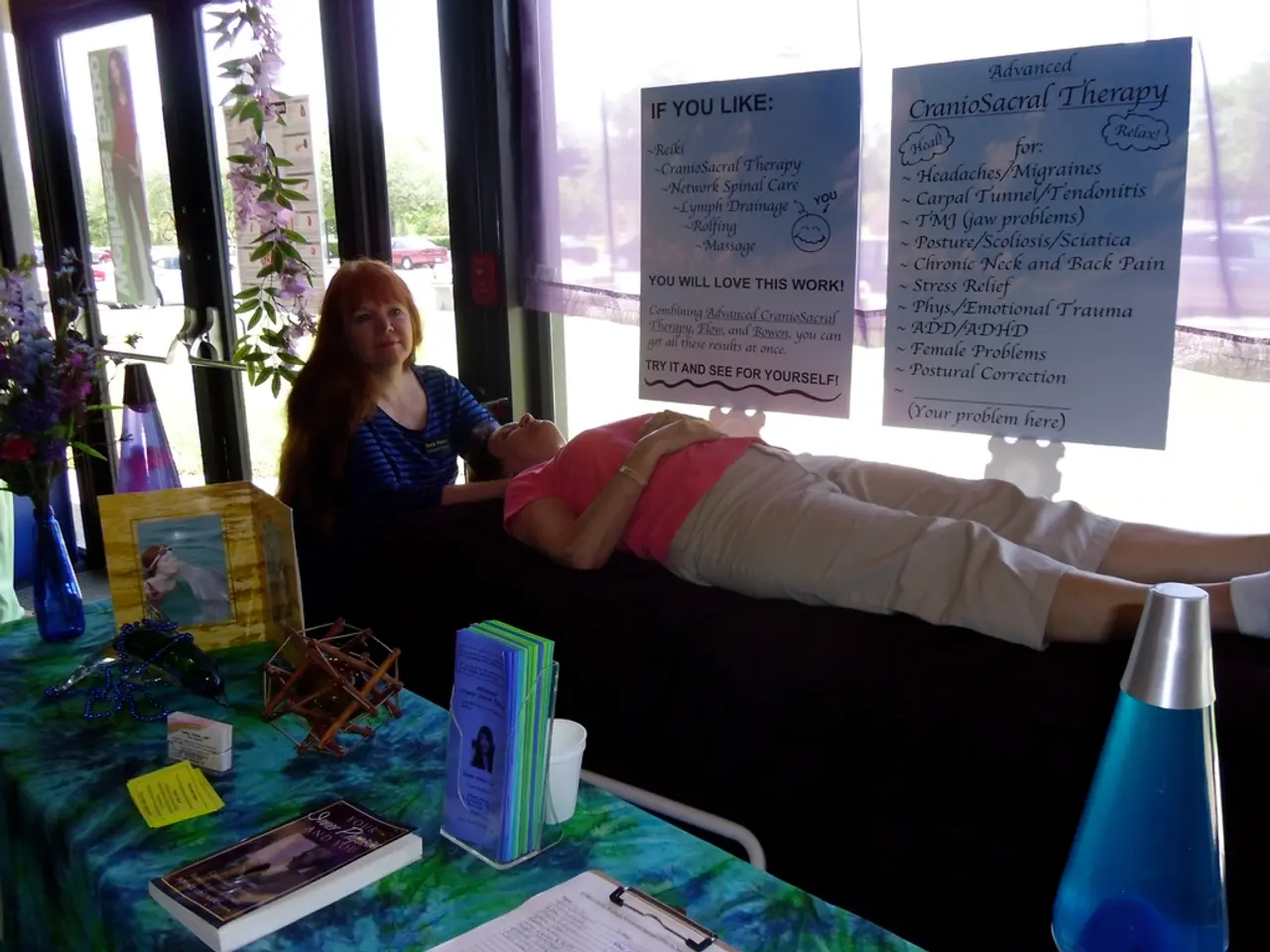Strategies for Easing Stress and Achieving Optimal Well-being
In today's fast-paced world, it's essential to prioritise self-care to maintain mental health and well-being. Here are some effective techniques that engage both the body and mind, helping you navigate through stressful times.
Breaking a sweat through enjoyable physical activities can release happy chemicals in the brain, reducing stress and anxiety and increasing energy levels. Regular exercise and setting fitness goals can transform one's body over time, while mixing up a workout routine with cardio and strength training can help maintain motivation.
Relaxing activities such as playing online games, reading a book, or taking a warm bath can help recharge and put a smile on one's face. Engaging in activities that one enjoys can help manage stress and improve overall well-being. Having dinner with a friend can provide a break from stress, offer socialization, and improve overall well-being.
Effective self-care techniques also include focused breathing and meditation. Practicing slow, deep breaths with mindful attention or guided meditation for 10 minutes daily can lower stress hormone levels, promote calm, lower blood pressure, and improve immune function.
Changing the environment can help reset and soothe your mind. Briefly removing yourself from stressful surroundings to a quieter or more peaceful place can be beneficial. Physical relaxation techniques like progressive muscle relaxation and self-massage to release tension in muscles are effective in alleviating physical stress.
Positive cognitive techniques, such as using positive affirmations and journaling to express gratitude and track stressors, can help increase self-awareness and emotional release. Sensory soothing and relaxation activities like adult coloring, warm baths or showers, and listening to calming or uplifting music offer tactile and auditory methods for relaxation and mood improvement.
Behavioral adjustments, such as minimizing stressors by cutting back on commitments or social media, maintaining balanced nutrition and hydration, ensuring restful 7-9 hour sleep, and establishing screen-free time, also contribute significantly to stress management.
Working from home occasionally for more flexibility can help maintain a good work-life balance. Establishing a good work-life balance is crucial to avoid burnout and maintain optimal function each day. Delegating work tasks and setting boundaries in the workplace can also help.
Engaging in hobbies and activities outside of work can provide enjoyment and something to look forward to participating in. Cooking for yourself can save money and calories by not having to eat out as much. Establishing a meditation space or room in your home can help with concentration and meditation practice.
Working with a personal trainer or finding an accountability partner can help maintain motivation in exercise. Prioritising self-care is important when dealing with overwhelming stress. Meditating can reduce stress, lower blood pressure, increase focus, and promote self-awareness.
By combining several of these techniques and starting with 2-3 manageable actions, you can build sustainable self-care routines that improve mental health over time. Remember, self-care is not a luxury but a necessity for maintaining a balanced and fulfilling life.
- Incorporating regular 'exercise' and 'fitness' routines can release happy chemicals in the brain, helping manage stress and boost overall 'health-and-wellness'.
- A 'blog' dedicated to 'how-to' self-care techniques might include sections on a variety of strategies, such as 'relaxation activities' like adult coloring, mindful breathing, and journaling for 'mental-health' improvements.
- Balanced nutrition, hydration, sleep, and even engaging in hobbies can serve as crucial 'self-care' practices, contributing to both physical and mental well-being.








